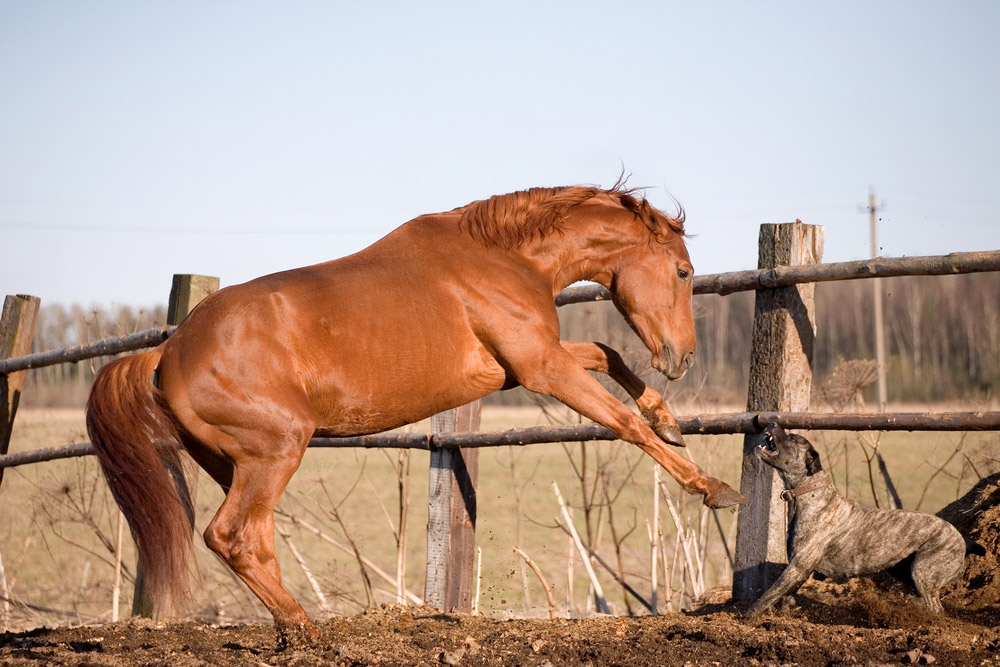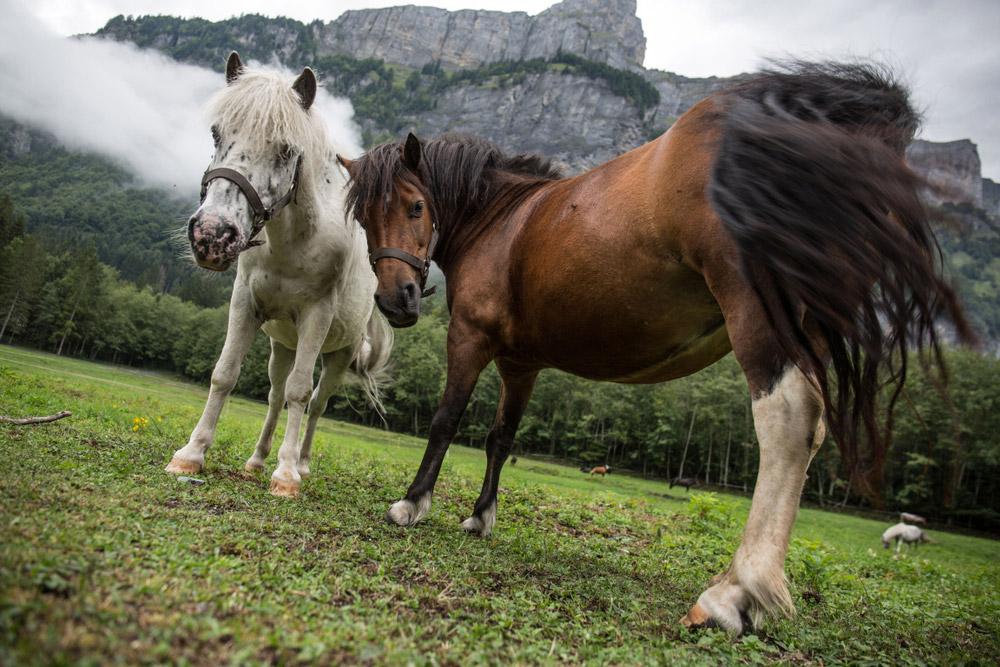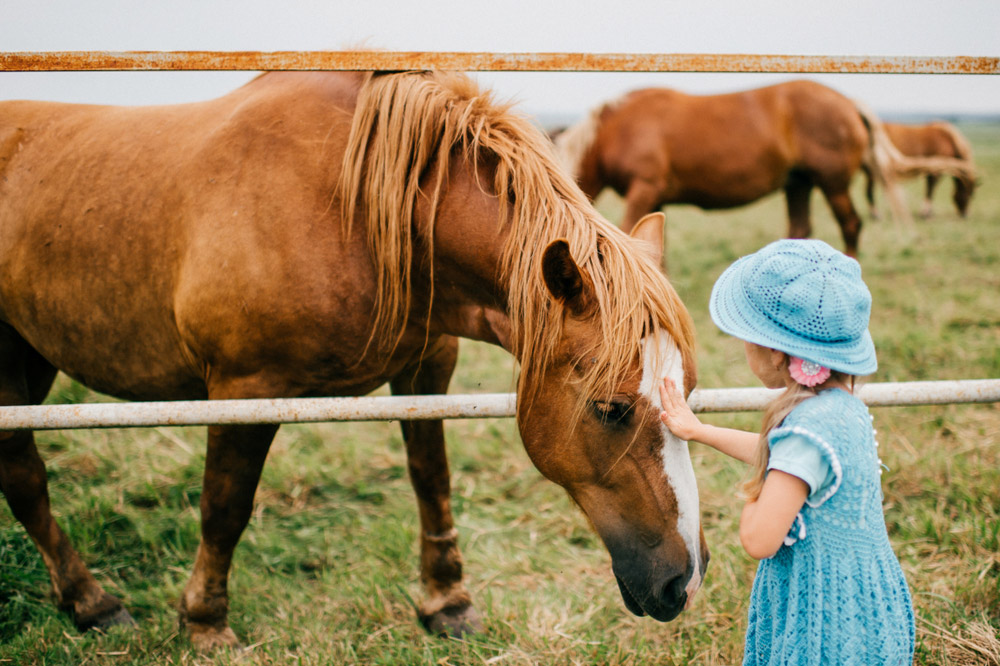Horses are one of the most majestic animals on earth. They can be a joy to ride and a great partner for humans, but horses have fears just like we do. You may think horses are afraid of nothing or that they don’t understand their own fear at all, but you would be wrong! Reading this article will show you what horses are afraid of so that you can avoid spooking your horse in the future.
The Common Fears of Horses
One common fear horses have is of being enclosed. If you are working with your horse in a round pen or tight spaces, make sure the pen isn’t too small or the horse will feel trapped.
Horses can also be afraid of things that move quickly or make sudden noises. This means that if you are around horses, it’s important to be aware of your movements and not to startle them with loud noises. When you approach your horse, do so slowly and speak softly to let them know you are there.
When tacking up a horse, loud noises may spook your equine. Like when you’re adjusting the Velcro pieces from the horse boots or your gloves. Equipment like a saddle and saddle pad should be mounted smoothly not to scare the animal.
Some horses are also afraid of being caught. They may feel like they’re being restrained or trapped if someone comes near them while they’re eating or relaxing in the barn. It’s important to be calm and slow when approaching a horse, especially if it looks like it’s feeling uneasy about something. In most cases, horses will come around once they get used to your presence.
If you have a horse that is afraid of people, don’t try to force them to come near you. Instead, back away and give the horse some space. If horses feel threatened, they may become agitated or even violent, which could lead to injuries for both the horse and the owner.

Horses can be spooked by certain animals. Dogs, coyotes, and even large birds can cause a horse to become agitated and fearful. Horses can be afraid of butterflies as well! They can also be startled by horses that move quickly. If a horse is afraid of something, it will likely try to avoid it or run away from it as soon as possible.
Domesticated horses can also be afraid of things that they don’t understand or haven’t seen before. Loud noises, such as thunder or fireworks, can startle a horse and make them fearful. Unexpected movement, like someone jumping out from behind a bush or plastic bags, can cause horses to become skittish.
Horses can be afraid of being left alone for a long time. Equines are herd animals so they feel better when there are their peers around. If horses are allowed to roam freely in a field, they need constant human supervision.
Horses also get frightened when you try to desensitize them with something new or different from their usual routine. You should always introduce horses slowly before exposing them to new things. So they can recognize it later on down the road. This is why we do not recommend taking your horse out for trail riding right away after buying it. Instead, take your time introducing them bit-by-bit to what it’s going to be used around.

How to Stop Your Horse from Spooking
Training your horse not to get spooked is essential. Introduce them to new objects from time to time. If your horses are used to the items in their paddock, they will not be worried when you bring out something else that is unfamiliar.
Horses can also become frightened if people startle or hurt them with an object. Many horses may have bad experiences being touched against their wishes. This could lead to fear of human contact later on in life. But horses who were trained while young learn how humans should behave around horses and tend not to look at us as a threat.
So it’s important for horses raised from birth on pasture lands with lots of space. So that herd instincts develop naturally without any negative experience. The one where a scared horse is associated with humans helping raise the foal.
It’s beneficial for many horse owners trying to handle horses to understand their body language. And be able to read the signs of fear or aggression in horses before they can become dangerous.

Here are some essential tips on how to stop your horse from spooking:
- When you turn out your horse, pick a place that is comfortable for your equine to walk around. Not in a place that they are afraid of, like near horses with aggressive behavior.
- And when they are out there, check on them frequently. Make sure that their surroundings haven’t changed or developed into something new for your horse.
- If you want to handle horses without getting hurt, it’s essential not to approach them suddenly. Also, show respect by speaking softly while looking away from the eyes. So horses can feel comfy around you.
- Never leave horses unattended during turnout time. Because anything could happen if someone spooks him causing injury or even death.
Horses have many different fears just like humans do. This is what makes horses unique creatures who deserve our care and attention every day. And knowing how horses act under stress will help you to be a better rider, trainer, and caregiver.

Conclusion
Horses are prey animals like cows, sheep, and zebras. Therefore, they tend to be naturally fearful. From the horse’s perspective, they need their space. Most horses don’t like being crowded by other horses or humans for long periods of time. Sometimes equines may feel trapped if another animal gets too close to them. Especially when they’re eating, drinking, playing, resting, or even traveling in the trailer.
Horses keep themselves safe by staying alert and aware of their surroundings at all times. These will sense danger before people do. This makes horses very easygoing. Because we know we have nothing to fear around our equine friend – unless you forget about his fears.
It’s important to pay attention to what are horses scared of if you work with them. It can help keep both you and your horse safe. By knowing what horses are afraid of, we can take steps to avoid spooking them. And create a safe environment where horses trust people. Horses are not just big animals that we use for transportation – they are living creatures with their own fears. And horse owners should understand it and respond accordingly.
